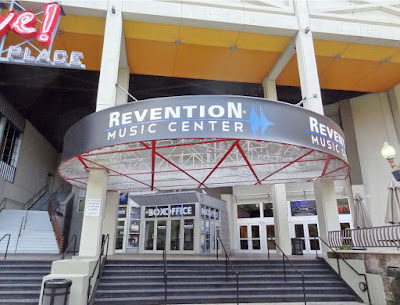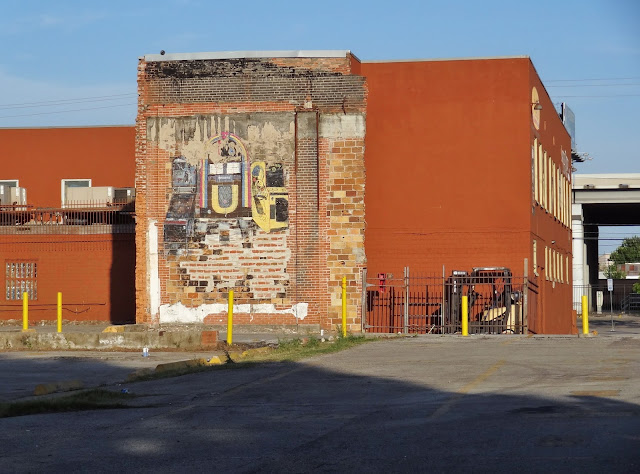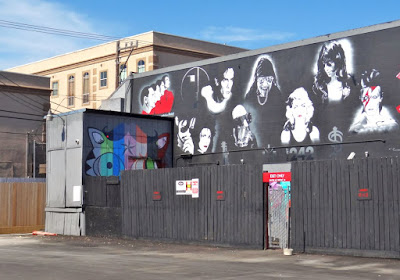If you fail to see the jewel in the junk, there is always City Hall itself as an object of aesthetic appreciation that has stood the test of times.
It may not be everyone's piece of tea to sip and savor, but there it is, -- ready to raise eyebrows, and spur white and gray matter activity. That opening sentence may mix metaphors, but that should be no cause for offense when it comes to commenting on demonstrative art consisting of a hodge-podge of re-purposed materials and debris.
 |
| Patrick Renner Art Exhibits |
And for those who find themselves challenged when it comes to appreciation of abstract modern art, not to mention distilling the aesthetics from objects consisting of discarded materials and sundry items of junk, there is always City Hall itself, built with federal funds in the 1930s, and functional for decades. At least as a building.
 |
| City Hall seen from Plaza in front of Central Library |
It's actually quite artistic, especially once you look at the details, the reliefs on the sandstone, and the imagery on the aluminum portals.
 |
| South Portal of City Hall facing Hermann Square |
Heads of important people that have come before, people of historic significance and of epic proportions. Nothing of the sort is evoked by the current collection of art objects on display outside, but a commentary on the post-millennial city it is nonetheless; -- especially the piece consisting of the uprooted and inverted metal poles with the chunk of concrete that went into the hole still attached. Aptly titled "Concrete Jungle".
 |
"Concrete Jungle" - Art work by Patrick Renner
 |
 |
| Michael Macedo Meazell: Art work titled "Steadfast" |
 |
Hermann Square Park with reflection pool that does double-duty as a
bathing facility for the homeless during the scorching Houston summer. |
Like City Hall, the reflection pool has practical functionality also. It serves not only as a bird bath, but as a cooling and cleaning facility for the City's plentiful homeless. If only city leaders had the wisdom and foresight to also erect Texas Outhouses to direct the flow generated by the park's most loyal constituency in a sanitary fashion. If it is feasible in Memorial Park, and on innumerable construction sites in the Central Business District and elsewhere, why not around City Hall?
It might even make the appreciation of the art at the park -- whether contemporary or yesteryears' -- all the more enjoyable. In the hot summer heat.















































